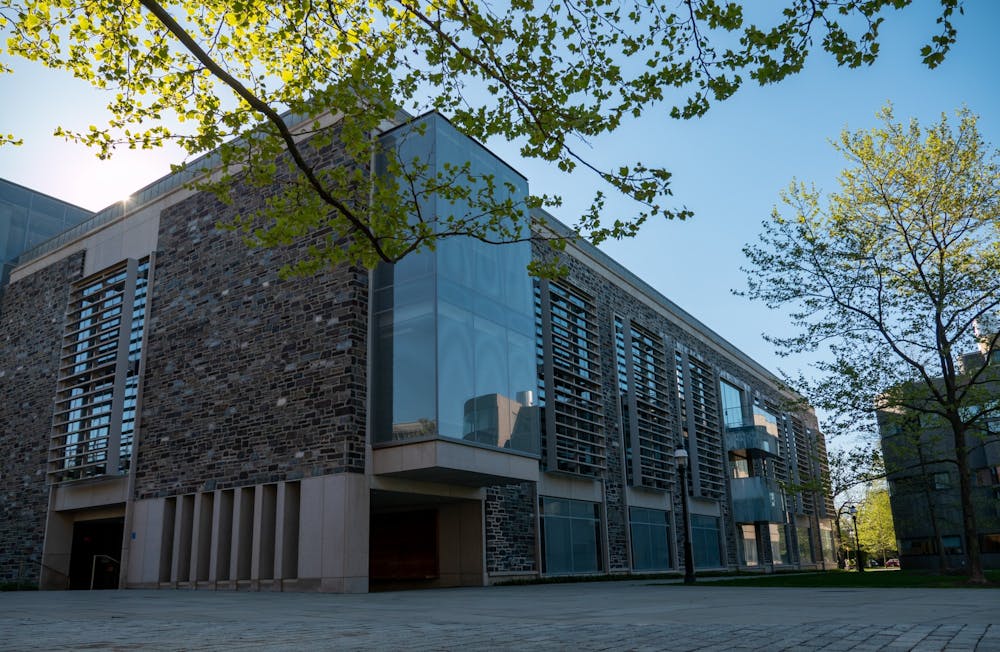On Jan. 21, President Biden’s administration announced immigration policy and visa changes intended to attract and retain international students in Science, Technology, Engineering, and Mathematics (STEM) fields.
The Department of Homeland Security (DHS) announced the inclusion of 22 new disciplines in the Optional Practical Training (OPT) that permits students with F-1 visas earning bachelor’s, master’s, and doctorate degrees in specific disciplines to remain in the United States for as long as three years after graduation.
While the exact disciplines are yet to be released, the White House stated that “the added fields of study are primarily new multidisciplinary or emerging fields, and are critical in attracting talent to support U.S. economic growth and technological competitiveness.”
According to the Davis International Center, F-1 visas are the most common for international students as “most students are eligible for an F-1 visa as long as they have been admitted to Princeton.”
In 2019, President Christopher Eisgruber ’83, along with several other New Jersey college presidents, wrote in a letter to the New Jersey Congressional delegation addressing these concerns.
“Over the past several years, we have observed a disturbing increase in the number — and length — of impediments put in the path of our international students, faculty, and staff,” the letter read.
The revision of visa policies is expected to address some of these concerns.
“These actions will allow international STEM talent to continue to make meaningful contributions to America’s scholarly, research and development, and innovation communities,” according to the White House statement.
International students across campus said in interview with The Daily Princetonian that they hope this announcement will positively impact the international student community.
Ronit Singhi ’25, who is studying at Princeton under an F-1 visa, said in an interview with the ‘Prince’ that he believes many international STEM students will welcome this change, “especially considering the particularly turbulent situation international students have had to navigate to continue studying abroad during the pandemic.” Singhi is a prospective physics concentrator from Jaipur, India.
Jenny Jiang ’25, a prospective economics student from Vancouver, Canada, said she thinks this change will attract more students to study in the United States.
“Canada has been attracting more international students in their higher education institutions through favorable policy changes lately and I’m glad to see the U.S. taking steps in this direction,” she wrote in a message to the ‘Prince.’

Other international students emphasized that this announcement makes them hopeful for other areas of study as well.
“I hope this decision to attract more international students can also be expanded to students in the humanities,“ Gustavo Andre Blanco-Quiroga ’25 said. “The U.S. has one of the best systems of education and beyond but it must be accessible to all students.” Blanco-Quiroga is from Oruro, Bolivia.
The international student population in the United States decreased by 15 percent between fall 2019 and fall 2020, and the number of incoming students decreased by more than 40 percent.
The Bureau of Education and Cultural Affairs also released new guidance allowing for undergraduate and graduate STEM students with J-1 visas to participate in “additional academic training” or work in the United States for up to 36 months. J-1 visas are used for students in specific exchange programs or are funded by their state department for their study at Princeton, among other specific cases.
This is expected to serve as an alternative to the H-1B visa necessary for international students continuing to work in the United States. The H-1B visa, historically, is given to only a small proportion of all applicants.
The Biden administration further revised immigration policy surrounding the “extraordinary ability” (O-1A) nonimmigrant status allocated to individuals who demonstrate prowess in science, business, education, or athletics such as Ph.D.s in STEM fields.
Tara Agarwal is a news staff writer for the ‘Prince.’ She can be reached at ta3150@princeton.edu.








